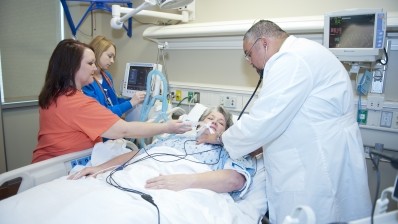Soapbox
End-of-year health check for complementary medicines industry

Twelve months ago, we were working hard to raise recognition for complementary medicines within the halls of Australian parliament. Today, we are engaged in a major drive for a reduction in red tape, to encourage innovation and allow our industry to contribute more strongly to preventative health in our country.
Yet, our success typically lies in incremental change. For our industry, as for most Australian industries, to achieve real change is a marathon, not a sprint.
Ours is an environment where many of the issues are difficult to solve in the short term; the grey area at the food-medicine interface springs to mind, as does the importance of identifying ways to encourage innovation and research in complementary medicines.

It was back in 2003 that an expert committee on complementary medicines in the health system recommended to the parliamentary secretary that the Therapeutic Goods Administration (TGA) should convene a group to identify possible mechanisms, including data protection and market exclusivity.
This is an intelligent and common-sense idea, important to the industry to increase our global competitiveness, and something we have continued to raise with the government.
This time last year, the big issue was the registration of practitioners. We support an independent national registration and accreditation scheme for naturopaths and western herbalists, and this is another issue that fits under the heading of “long-term project”.
And it’s important. Consumers should be able choose their healthcare provider in an effective, integrated healthcare system, and they should be confident that their practitioner is bound by a high standard of care. I must also add that without informed, knowledgeable and supportive practitioners, our industry would struggle to exist.
Today, the issue that is most pressing both for the government and the industry is the deregulation agenda. In recent times, the regulatory burden has been suffocating our industry. Therefore, we were pleased to welcome the inclusion of complementary medicines in the independent review of the regulation of medicines and medical devices, led by Emeritus Professor Lloyd Sansom AO.
The review aims to identify areas of unnecessary, duplicative, or ineffective regulation and to allow businesses to respond to global trends. This review is past due.
Please don’t get me wrong. As a sector, the Australian complementary medicines industry appreciates and respects the role of the TGA in the interests of public health, and somewhat by default, in ensuring that our products are recognised globally for being of high quality and safety.
These are low-risk products, yet finding the right “light touch” regulatory environment, one that encourages and promotes innovation and preventative healthcare, means a delicate balance must be achieved.
I believe this is a significant time for our industry. Now, as much as ever before, a strong relationship and open dialogue with the regulator are both vital, and fortunately, are something that we have.
We have come a long way. We also have a lot to talk about.















